Own the Samurai's Ultimate Sidearm – Our Authentic Tanto! Crafted from high-carbon steel with razor-sharp edges, these compact yet deadly blades deliver perfect balance and bushido spirit. A top choice for US martial artists, collectors, and tactical enthusiasts, our tanto excels in precision cutting while honoring centuries of Japanese craftsmanship. Whether for training, display, or survival use, this iconic dagger dominates where others fail. Join thousands of satisfied customers – wield a tanto forged for true warriors!
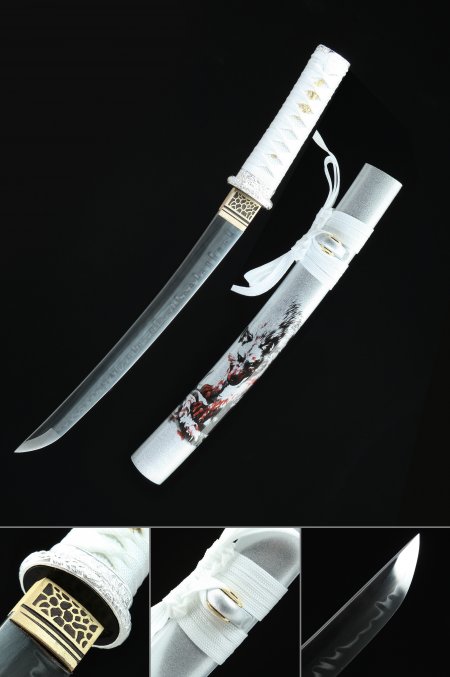
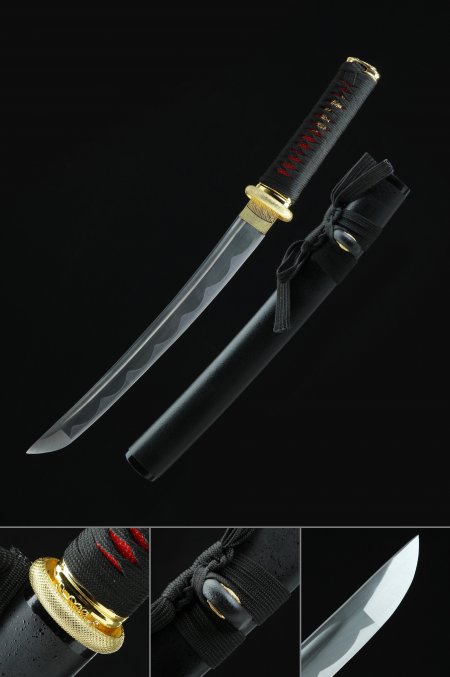
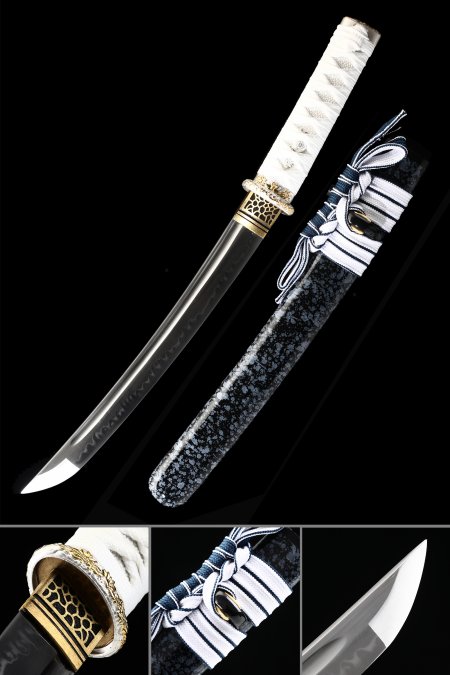
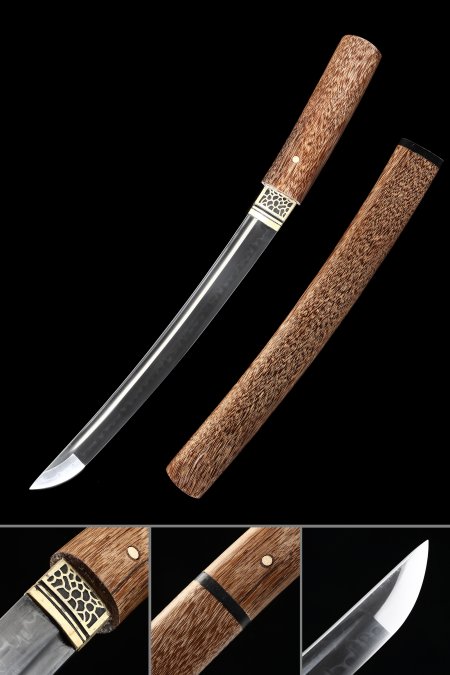
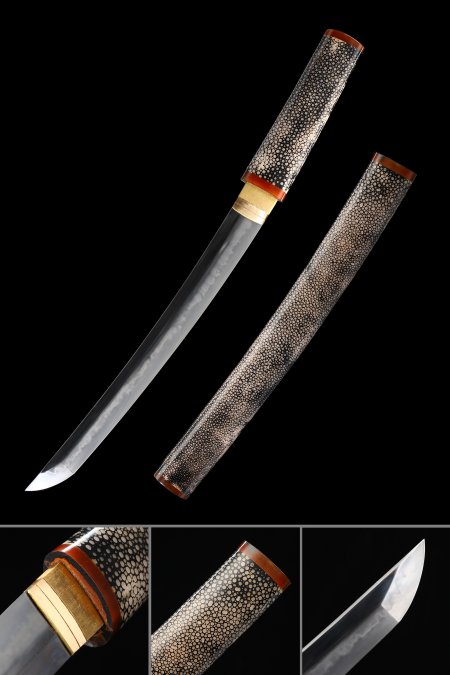
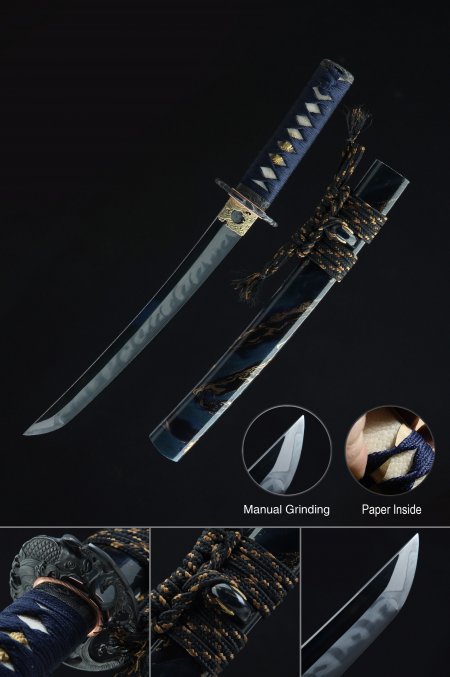
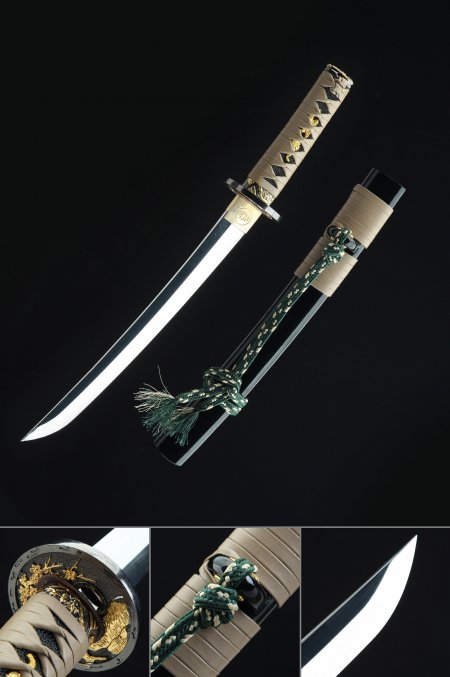
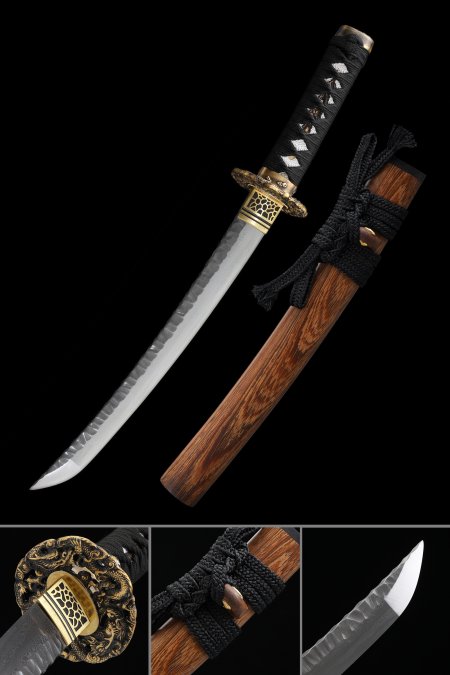
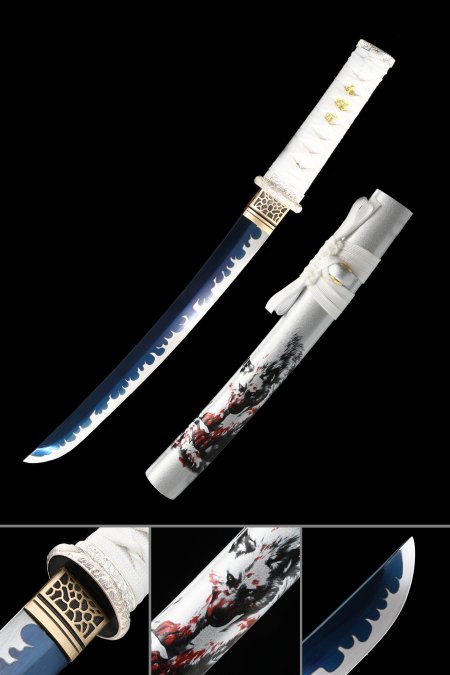
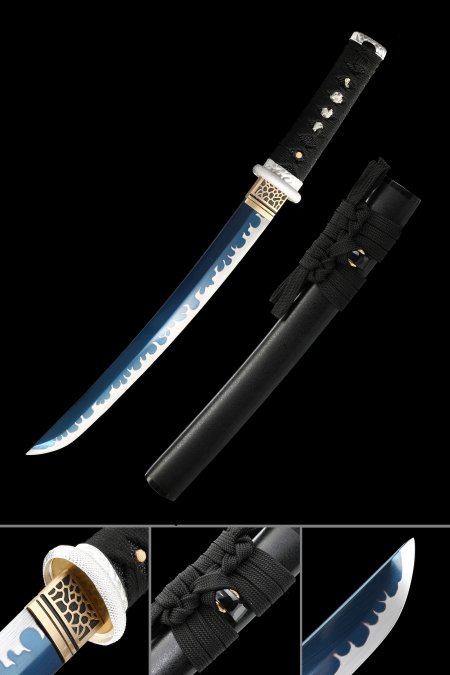
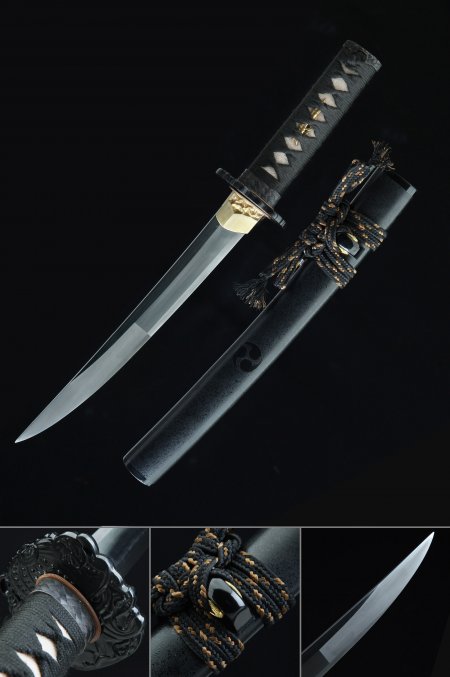
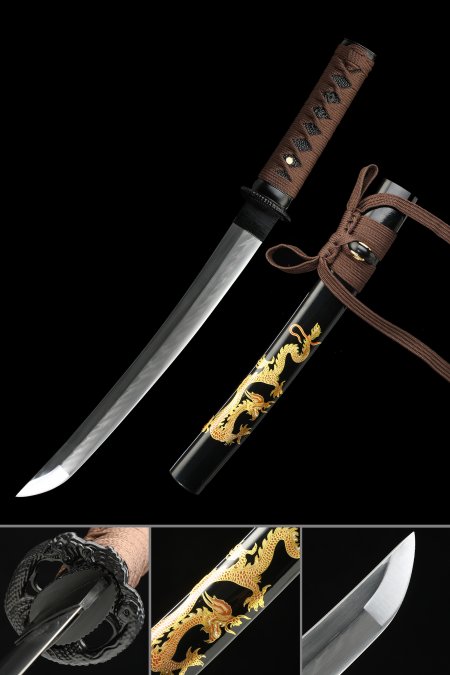
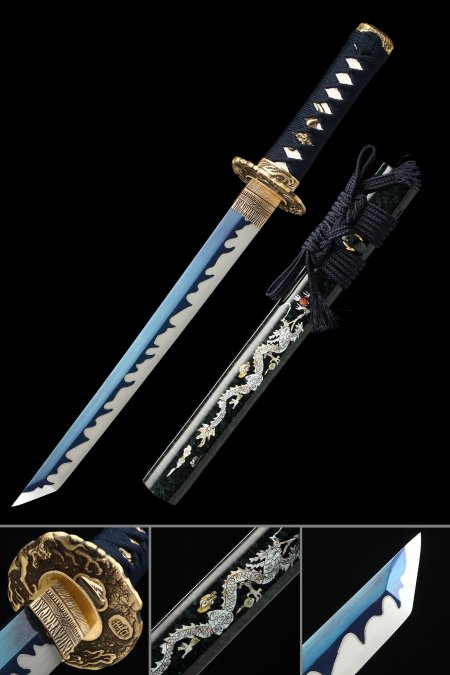
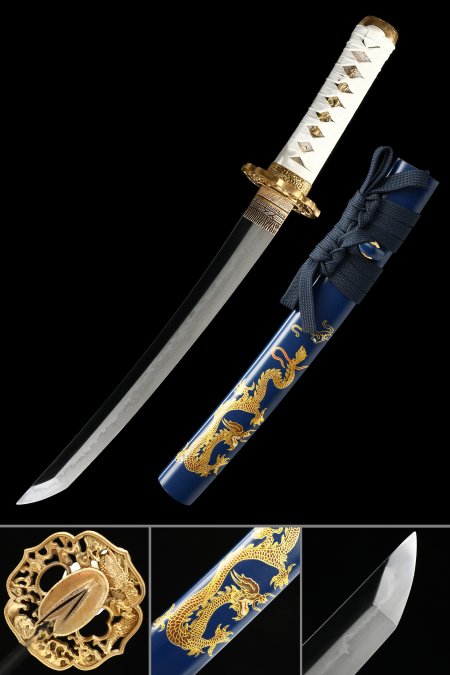
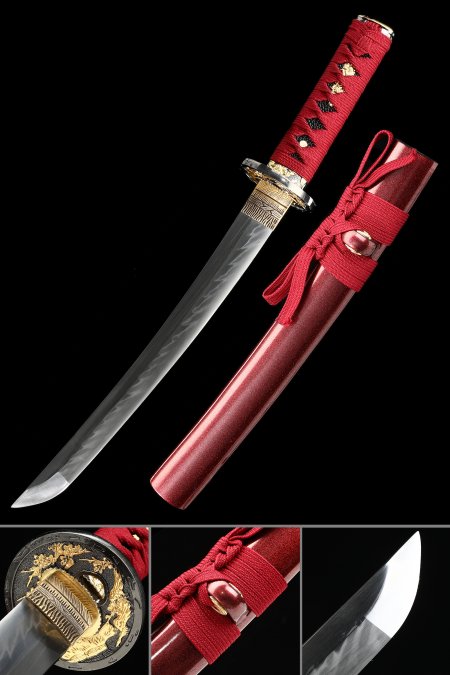
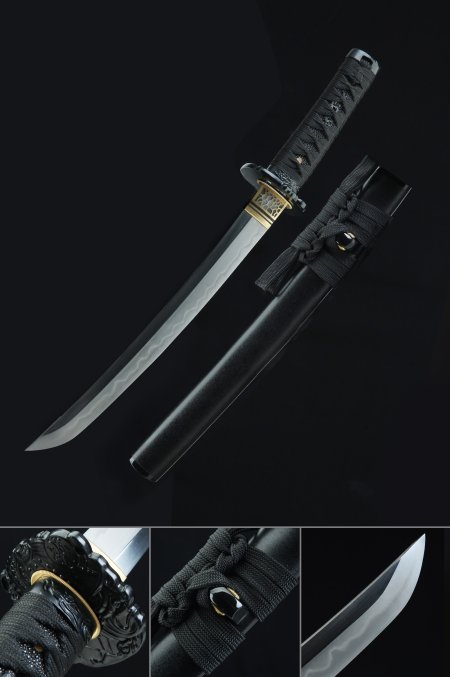
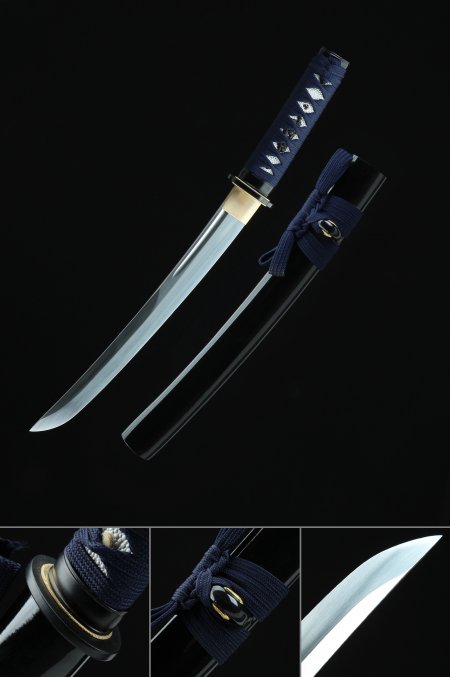
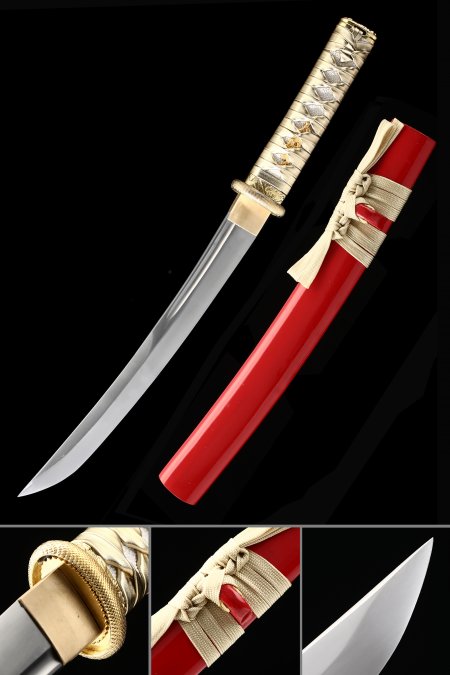
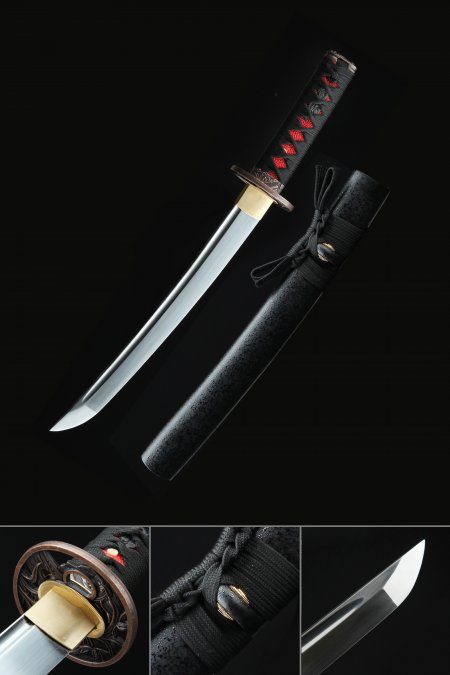
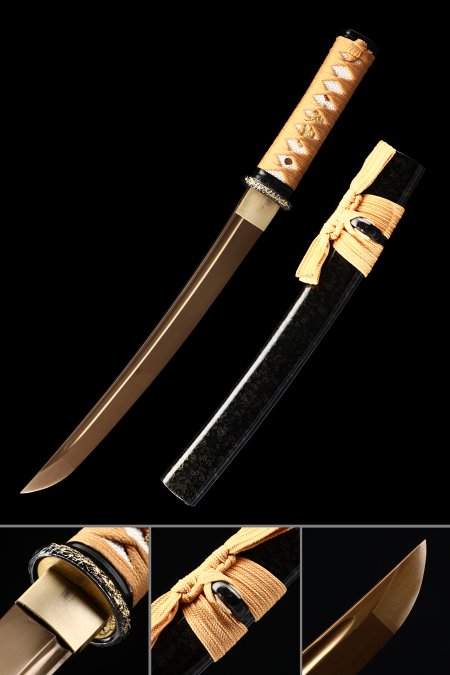
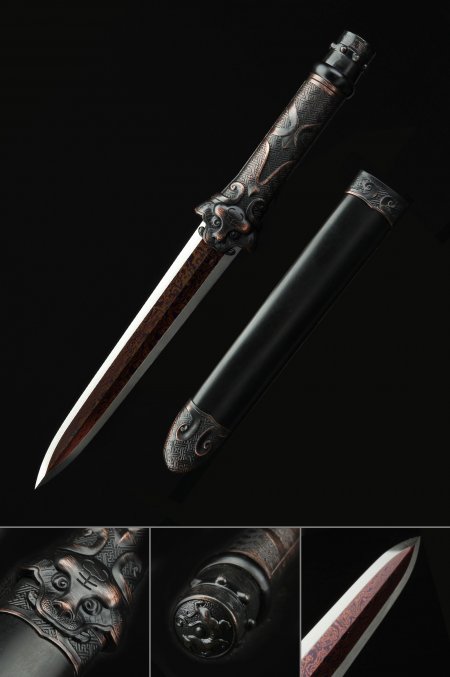
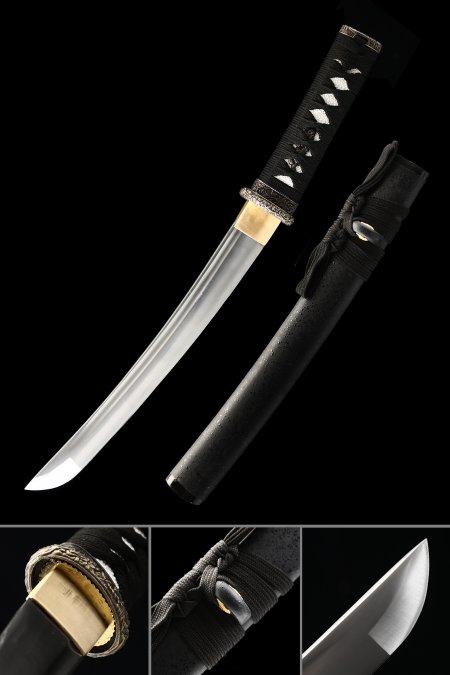
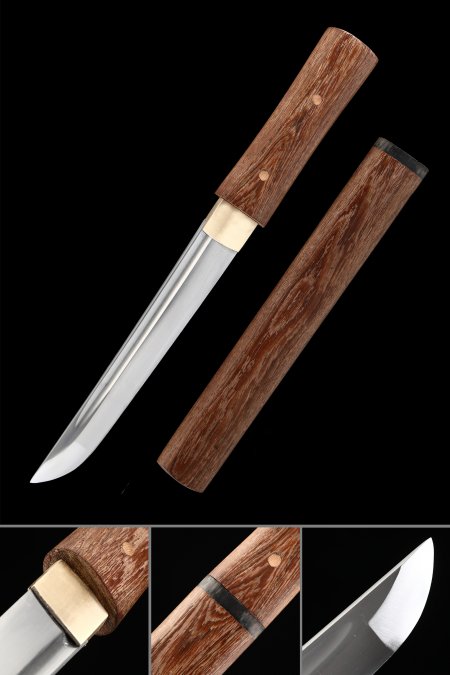
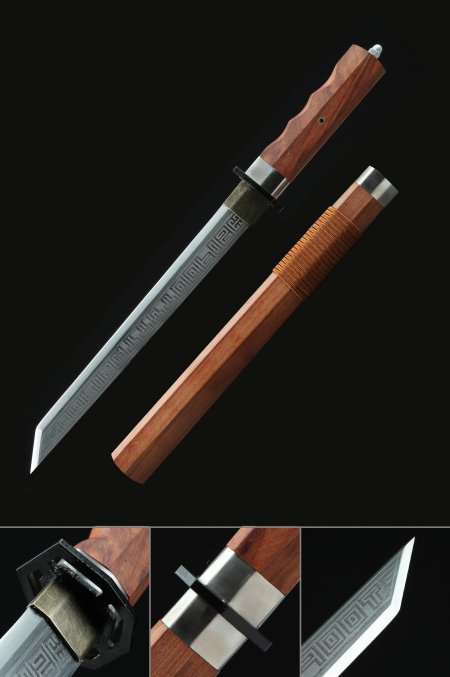
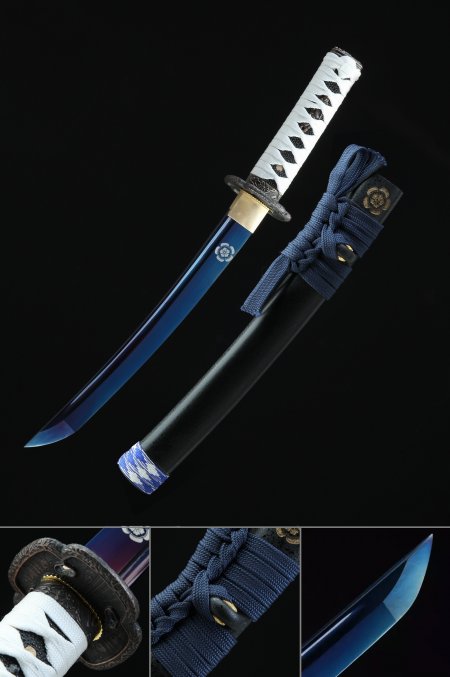
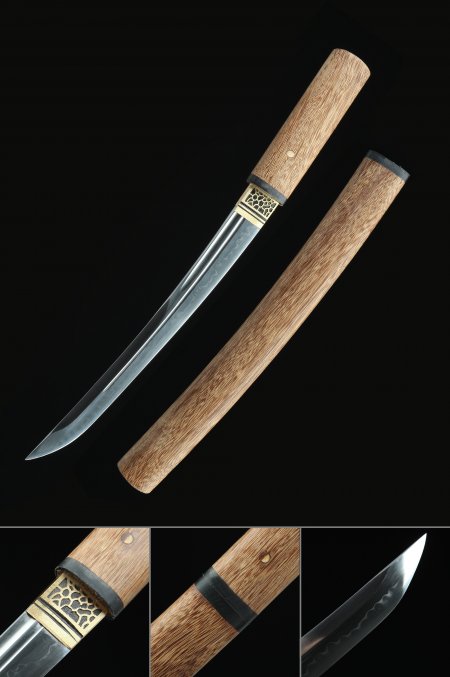
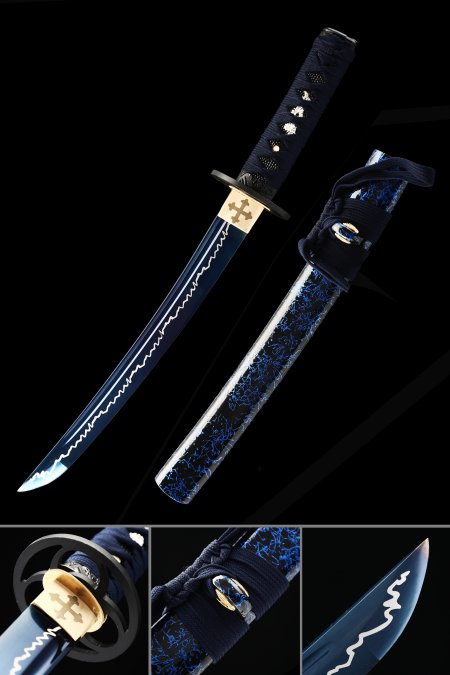
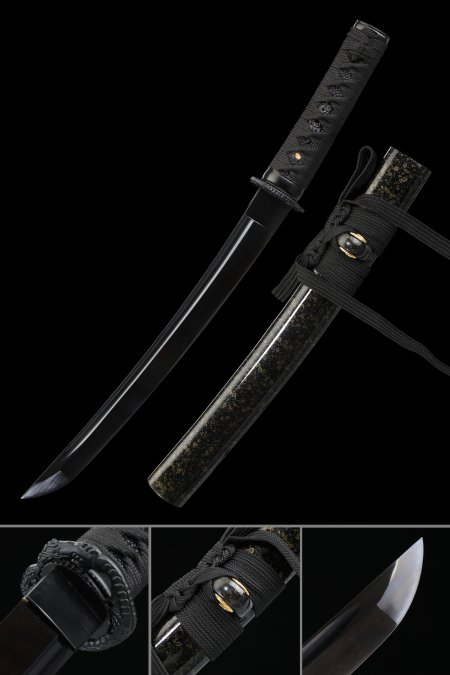
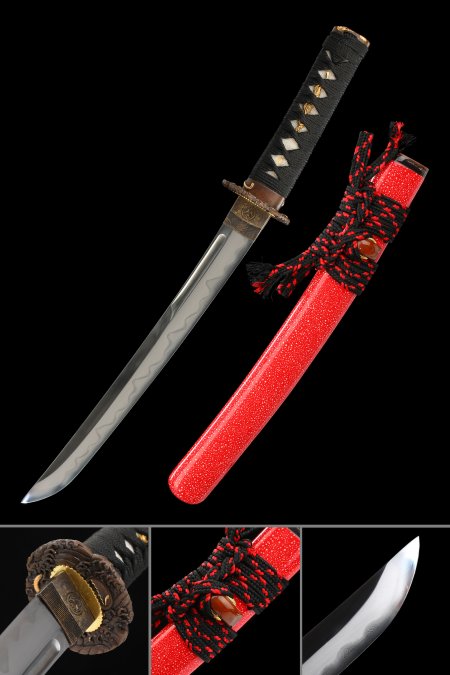
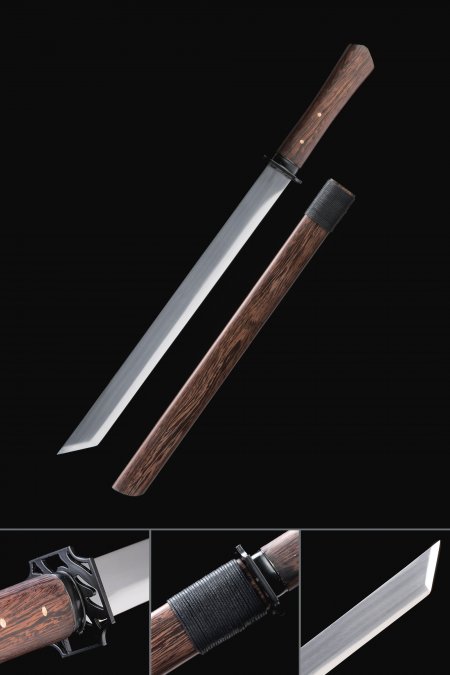
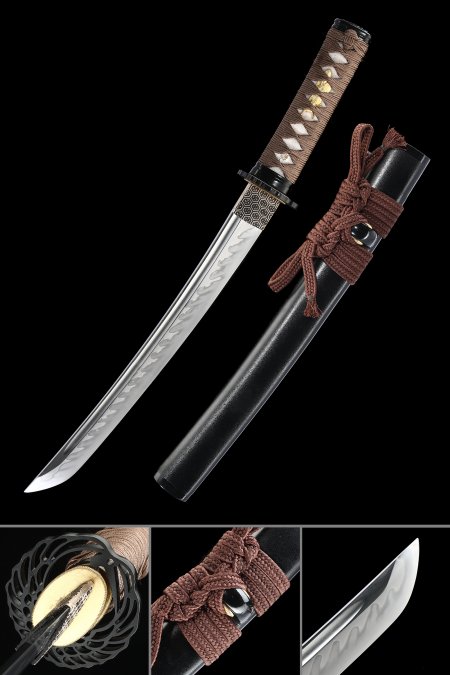
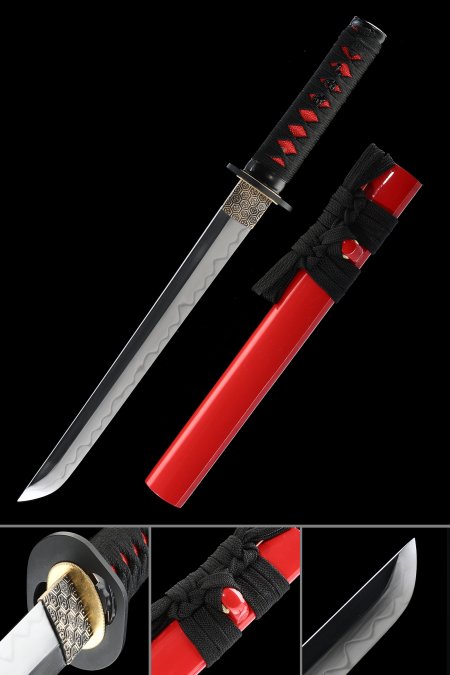
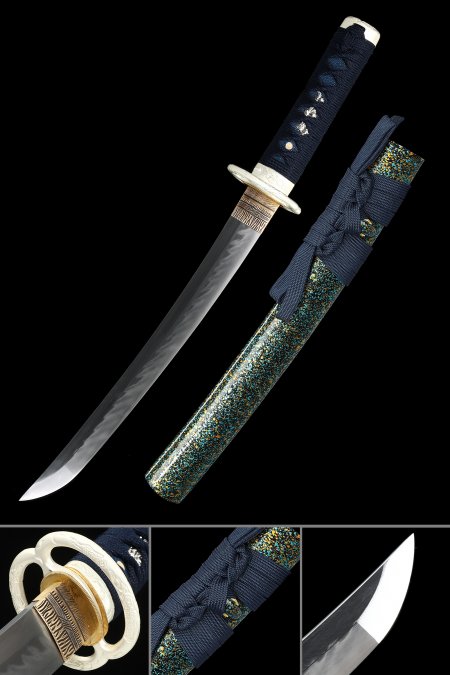
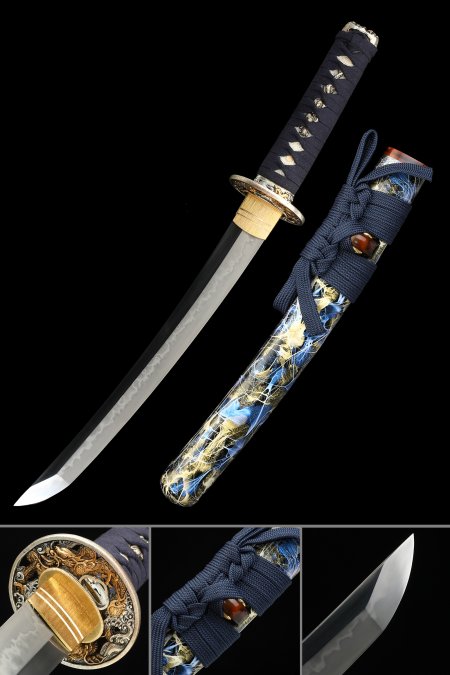
Love the sword. Beautiful craftsmanship and very fast shipping. Looking forward to buying additional items from this company
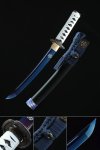 |
Ghost of Tsushima Tanto - Jin Sakai Short Sword Replica 1065 Carbon Steel Blue Blade Black Scabbard |
Very good quality replica. The blade and tsuba look pretty, and it had very fast shipping. Would consider buying other replicas.
 |
Ghost of Tsushima Tanto - Jin Sakai Short Sword Replica 1065 Carbon Steel Blue Blade Black Scabbard |
Great product love the level of detail and solid construction
 |
Ghost of Tsushima Tanto - Jin Sakai Short Sword Replica 1065 Carbon Steel Blue Blade Black Scabbard |
The Sword I ordered was a gift for my son that he picked out. I was skeptical since I was unfamiliar with the company. I even tried to get him to wait and do some research before making a purchase, but he said this sword was the one he wanted. The shipping time was reasonable and the quality of the sword was honestly a lot more than I was expecting The blade is solid and the handle is also well made. It is a beautiful sword, my son loves it, and I would definitely order from this company again in the future.
 |
Ghost of Tsushima Tanto - Jin Sakai Short Sword Replica 1065 Carbon Steel Blue Blade Black Scabbard |
Heavy, balanced and display worthy. An awesome piece.
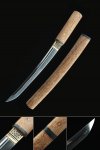 |
Handmade Shirasaya Tanto Sword T10 Carbon Steel Real Hamon |
Shipping was quick. Quality is outstanding and will definitely come back to collect more beautiful pieces.
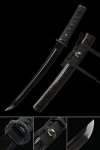 |
Handmade Japanese Tanto Sword With Black Blade |
Got this for my son for Christmas who started collecting swords, looks awesome and he loved it!!!
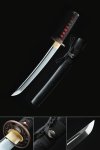 |
Handmade Japanese Tanto Sword 1045 Carbon Steel Full Tang |
I’m no sword smith, but I am a satisfied customer. The Tanto is very nice and I did choose the T10 steel for its strength and edge retention capabilities. The hamon line is nice with nice graying. Shipping and delivery was fast. I waited for the Tanto to decide whether or not to order a Wakizashi and I did. If it’s appearance and quality is what I’m expecting I’ll be ordering a Katana.
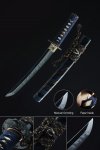 |
High-performance Japanese Tanto Sword Real Hamon |
Good quality just wish it was sharper than what it is but other than that its really good.
 |
Ghost of Tsushima Tanto - Jin Sakai Short Sword Replica 1065 Carbon Steel Blue Blade Black Scabbard |
Love at first sight, will definitely purchase more from you guys
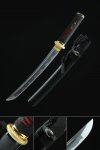 |
Handmade Japanese Short Tanto Sword 1045 Carbon Steel With Black Scabbard |
Delivered promptly, product as described/displayed on site. Great addition to my son's collection!
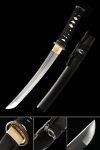 |
Handmade Japanese Short Tanto Sword 1045 Carbon Steel |
Nicer than I thought! I’m going to try to sharpen it a little better. From what I understand…one should be able to cleanly cut a piece of paper. It’s not sharp enough to do that
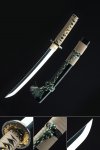 |
Handmade Japanese Tanto Sword High Manganese Steel |
your rating is fine.r
Your shipper UPS was a total failure.
 |
Handmade Japanese Short Tanto Sword 1045 Carbon Steel |
Exactly how it looks in photos. Fast shipping. Great overall value. Got it for my wife and she is very happy.
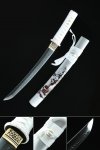 |
Handmade Japanese Short Tanto Sword T10 Carbon Steel Real Hamon With White Scabbard |
Very good, although I wish it would have come with a Japanese cloth scabbard for katana.r
Not a problem as I found one, Thanks so much!
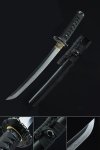 |
Handcrafted T10 Carbon Steel Tanto With Samurai Themed Tsuba |
Tanto looked great, no visible flaws. Cuts regular paper well, has trouble cutting thin magazine pages.
 |
Handmade Japanese Short Tanto Sword T10 Carbon Steel Real Hamon With White Scabbard |
Love this sword I got a few more u wanna buy from trukatana.com
 |
Ghost of Tsushima Tanto - Jin Sakai Short Sword Replica 1065 Carbon Steel Blue Blade Black Scabbard |
My new beaty. Like picture shows Even better and very good craftmanship
 |
Handmade Japanese Short Tanto Sword 1045 Carbon Steel With Black Scabbard |
The wooden sheath & handle of high quality. The blade is also of high quality. I love it.
 |
Handmade Shirasaya Tanto Sword T10 Carbon Steel Real Hamon |
I got this as a gift for my boyfriend and I’m so impressed with the quality. Also the care taken to make sure it survived shipping was greatly appreciated! I look forward to ordering from here again to expand our collection.
 |
Ghost of Tsushima Tanto - Jin Sakai Short Sword Replica 1065 Carbon Steel Blue Blade Black Scabbard |